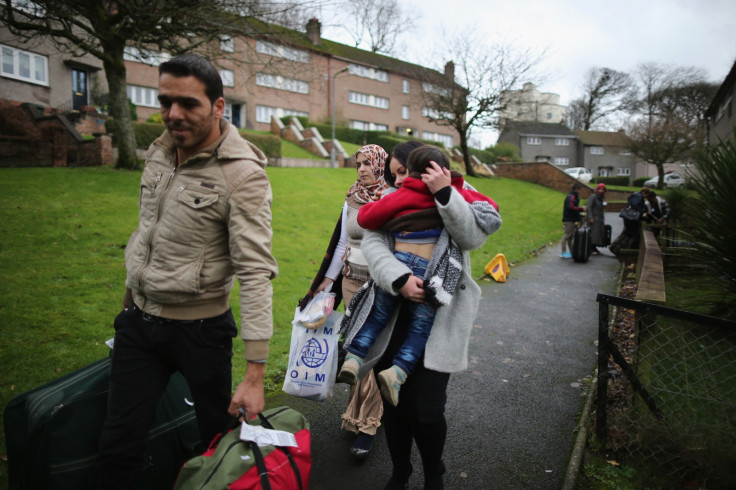Immigration Enforcement increases fines and proposes new refugee deportation plan
The Home Office continue to target migrant workers, asylum seekers and refugees by implementing increased penalties and fighting for the Rwanda bill.

Fines for employers and landlords who allow migrants who have arrived in the UK illegally to work for them or rent their properties have been more than tripled. The Home Office announced today that this is the "biggest shake-up of civil penalties since 2014".
This new scheme is part of Prime Minister Rishi Sunak's 'Stop the Small Boats' campaign, which has been dubbed as 'inhumane' by human rights organisations.
Employers will now face a civil penalty that has been raised to £45,000 per illegal worker and will be charged up to £60,000 for repeat breaches.
Landlords will see their fines grow by more than five thousand per cent, with fines increasing from £80 per lodger and £1,000 per occupier for a first breach to up to £5,000 per lodger and £10,000 per occupier.
Fines for repeat breaches will also escalate from £500 per lodger to £10,000 per lodger, as well as from £3,000 per occupier to £20,000 per occupier.
Records show that since 2018, nearly 5,000 penalties have been issued to employers who are employing those without the right to work in the UK, which has generated a total value of £88.4 million. Landlords have been hit with 320 civil penalties since the start of 2018, worth a total of £215,500.
The Minister for Immigration Robert Jenrick declared: "Making it harder for illegal migrants to work and operate in the UK is vital to deterring dangerous, unnecessary small boat crossings."
An investigation by the Centre for Research and Analysis of Migration at University College London studied the fiscal effects of migration to the UK.
The report found that "immigrants from outside the EU countries made a net fiscal contribution of around £5.2 billion, thus paying into the system about three per cent more than they took out".
The University College London report concluded: "Immigrants arriving since the early 2000s have made a net contribution to its public finances, a reality that contrasts starkly with the view often maintained in public debate."
Ascension Island does not issue visas to citizens of Iran, Libya, North Korea, Syria, and Ukraine: which means if we do create a gulag on the island, most asylum seekers would live under the harshest physical and administrative isolation terms. Unimaginably cruel. pic.twitter.com/vbiAQBga0Y
— Pranay Manocha (@PranMan) August 8, 2023
To tackle the asylum seeker backlog, which currently stands at more than 170,000 cases, the Home Office recently announced their new plan to deport asylum seekers to Ascension Island if the Rwanda policy fails.
Ascension Island is a volcanic island in the middle of the South Atlantic Ocean, around 4,000 miles from the UK. The island is home to 800 residents, a few shops, and basic amenities.
There is a small hospital situated on the island, but due to the small facility only dealing with day-to-day complaints, a sophisticated level of treatment must be sourced elsewhere.
In 2020, Neuroscience Research Australia revealed that almost 40 per cent of refugees and asylum seekers worldwide suffer from extreme trauma and PTSD.
Despite the Rwanda bill being ruled 'unlawful' by the High Court, Home Office Minister Sarah Dines told reporters: "We are pretty confident that Rwanda is a legal policy. The high court and the lord chief justice found that it was, so that is what we are focusing on. But, like any responsible government, we look at additional measures. So, we are looking at everything to make sure our policy works."
But, when Journalist Sarah Johnson visited the Mahama refugee camp in Rwanda and asked the Home Office why a UK journalist was denied basic access to refugees in Rwanda, they replied that they were "unable" to comment.
Jacob Rees Mogg, a former Cabinet Minister also recalled that any refugee deportation plan "would cost at least a million pounds per person you sent there".
Since targeting migrant workers, asylum seekers and refugees, Immigration Enforcement has arrested more people in 2023 than during the whole of 2022.
© Copyright IBTimes 2024. All rights reserved.






